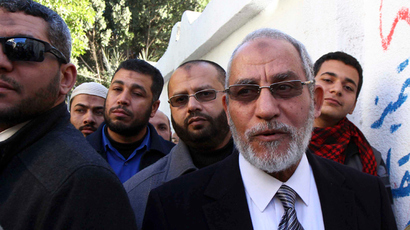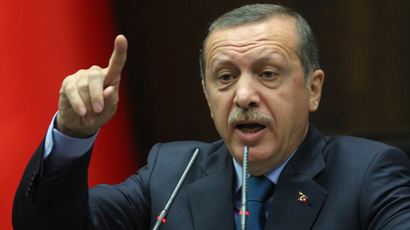Egypt’s interior minister survives assassination attempt
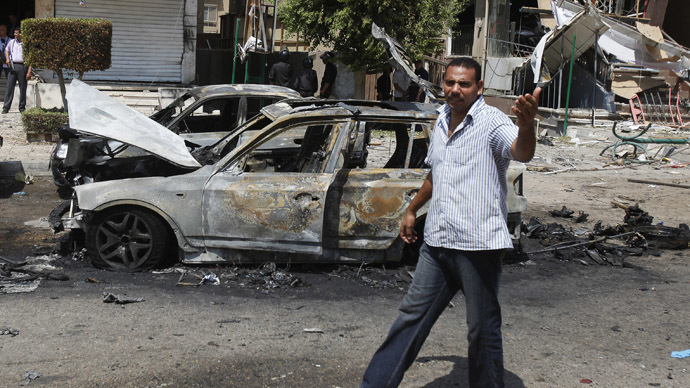
The Egyptian interior minister, Mohamed Ibrahim, has avoided injuries in an assassination attempt as his motorcade was blown up by a remote-controlled bomb while driving through the infamous Nasr City district in the capital, Cairo.
22 people were wounded – two policemen and a child
seriously – are reported wounded in the attack, with
security forces also saying that the diver of the car, in which
the bomb was planted, has died.
The shocked, but unhurt minister appeared live on national
television just two hours after the assassination attempt, which
happened late on Thursday morning.
Ibrahim said his black SUV was directly hit by “a large-size
explosive device” and received serious damage along with four
other cars in the convoy.
“Many of my guards were injured,” he said, adding that one
police officer was in a critical condition and another policeman
and a small child had lost their legs in the explosion.
According to the minister, investigations showed the blast had
most likely been detonated by remote control.
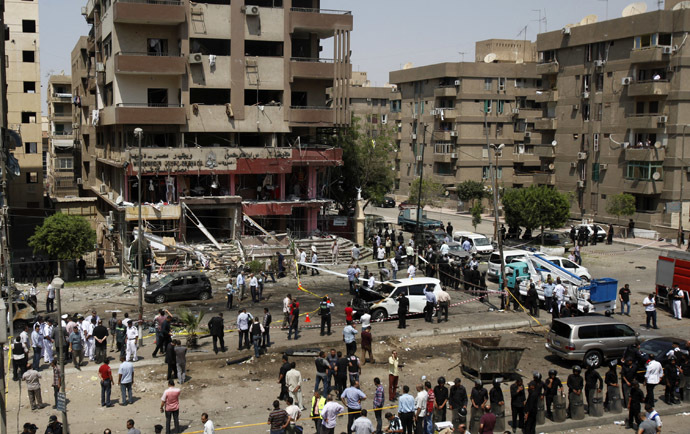
It’s the first attack on a senior government official since the
army toppled the country's Islamist president, Mohamed Morsi, two
months ago.
“What happened today isn’t the end, but the beginning,” the
minister said when asked by the reporters if an attempt on his
life marked the start of “a new wave of terrorism” for
Egypt.
"Even if I am martyred, another interior minister will come
and continue the war on the evil terror until we secure the
country," he added.
Ibrahim was among the officials, who oversaw a violent crackdown
on protestors demanding Morsi’s reinstatement, which saw hundreds
of people killed.
The attempt on his life was carried out in Nasr City, known as a
stronghold of the Muslim Brotherhood, the Islamist group that
former president Morsi represented. The district in the east of
Cairo was the scene of Egypt's most famous assassination when
president, Anwar Sadat, was murdered by Islamists back in 1981.
In his interview last week, Ibrahim stressed that he was aware of
plans to assassinate him, in which “foreign elements” were
involved, and therefore he was supplied with an armored car,
identical to the one used by Egypt’s military leader, General
Abdel Fattah al-Sisi.

The Egyptian security forces said that the bomb was planted inside a parked car and detonated as Ibrahim's motorcade was passing by.
The driver of the vehicle used in the assassination attempt has
“met his end” in the explosion, head of Cairo security,
Osama al-Saghir, told Al-Ahram newspaper, adding that “the
investigators found the remains of a body that are being
examined.”
“I was standing by a kiosk when police officers came and told
me to make way as the minister's convoy passed. I moved a few
inches, then I heard a huge explosion," local resident
Mohamed Raafat told Reuters. “I looked behind and I saw
remains of dead bodies and was told that a car that was parking
had exploded near the convoy.”
There were also reports on Egyptian State TV claiming that the
explosive device was thrown at the convoy from the roof of one of
the buildings.
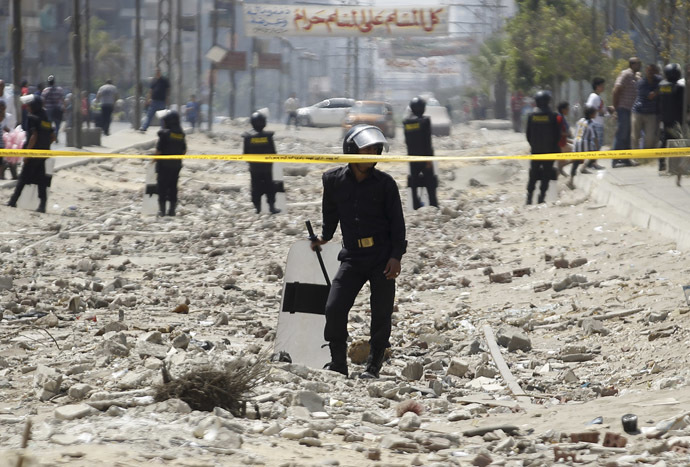
Police were searching the area for suspects, but no arrests have
been made, security officials told AP on condition of anonymity.
There were no immediate claims of responsibility for the attack,
with senior Muslim Brotherhood leader, Amr Darrag, condemning the
assassination attempt on Ibrahim.
“The bombing allegedly targeting the minister of interior
today is regrettable and the alliance strongly condemns it,"
Darrag said in a statement on behalf of the Islamist Muslim
Brotherhood-led ‘Anti-Coup Alliance’.
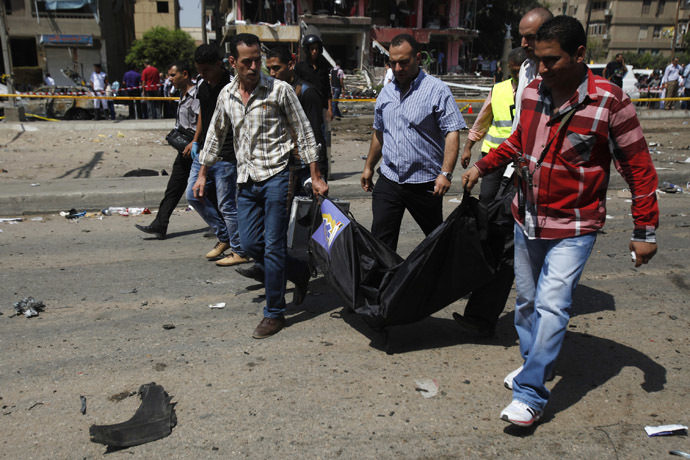
Gamaa Islamiya, the radical Islamist group behind the 1980s and
1990s insurgency in Egypt, also said it had nothing to do with
the explosion, denouncing the move.
But, previously, some of Morsi's hard-line backers have publicly
threatened to wage a campaign of roadside bombings, suicide
bombings and assassinations against high-ranked officials of the
military-led government until Egypt’s first democratically
elected president is back in power.
Since Morsi’s ouster on July 3, the attacks on security forces
have stepped up in North Sinai where Islamist militants have
established themselves in the last couple of years.













